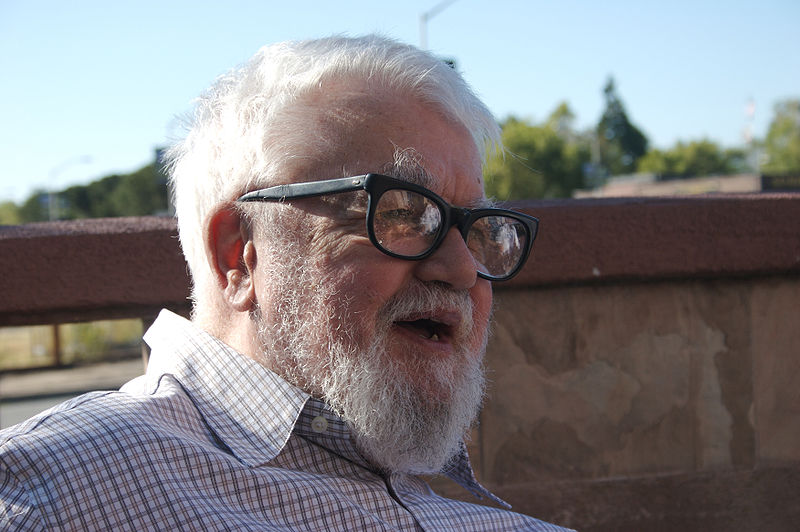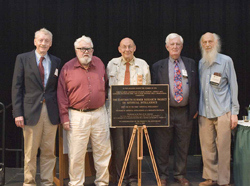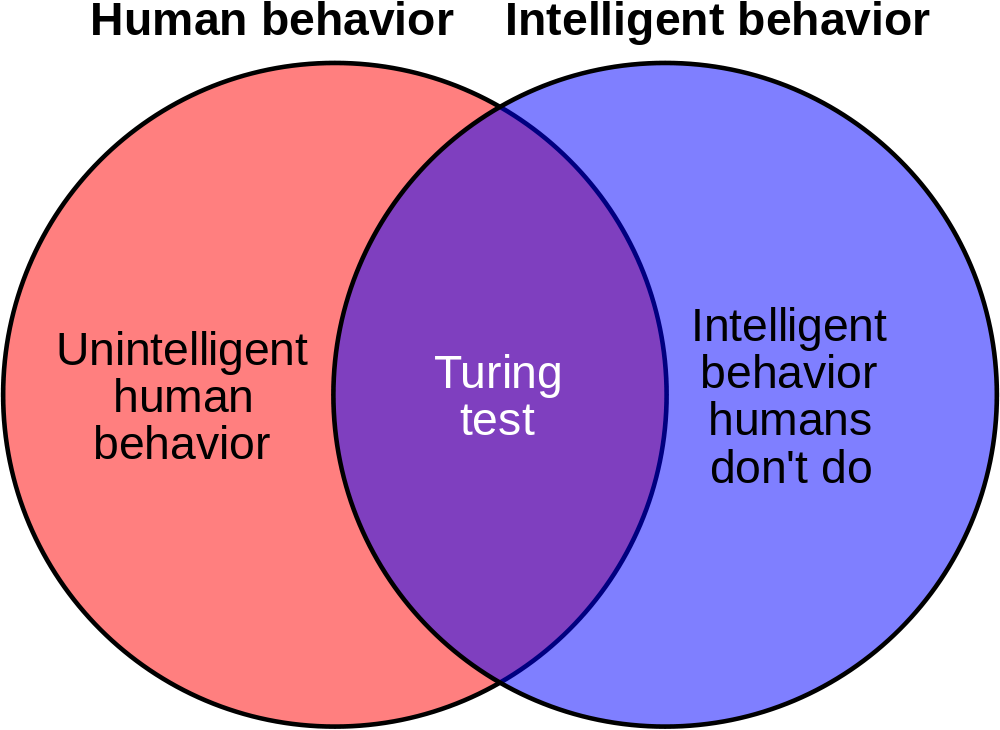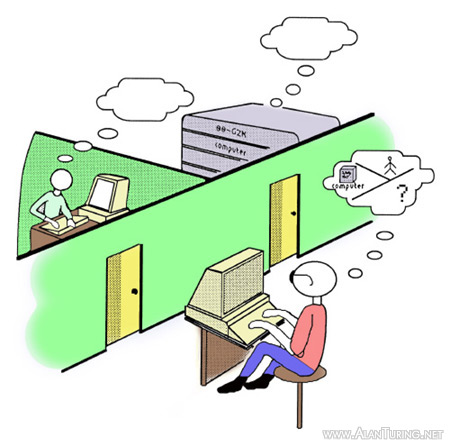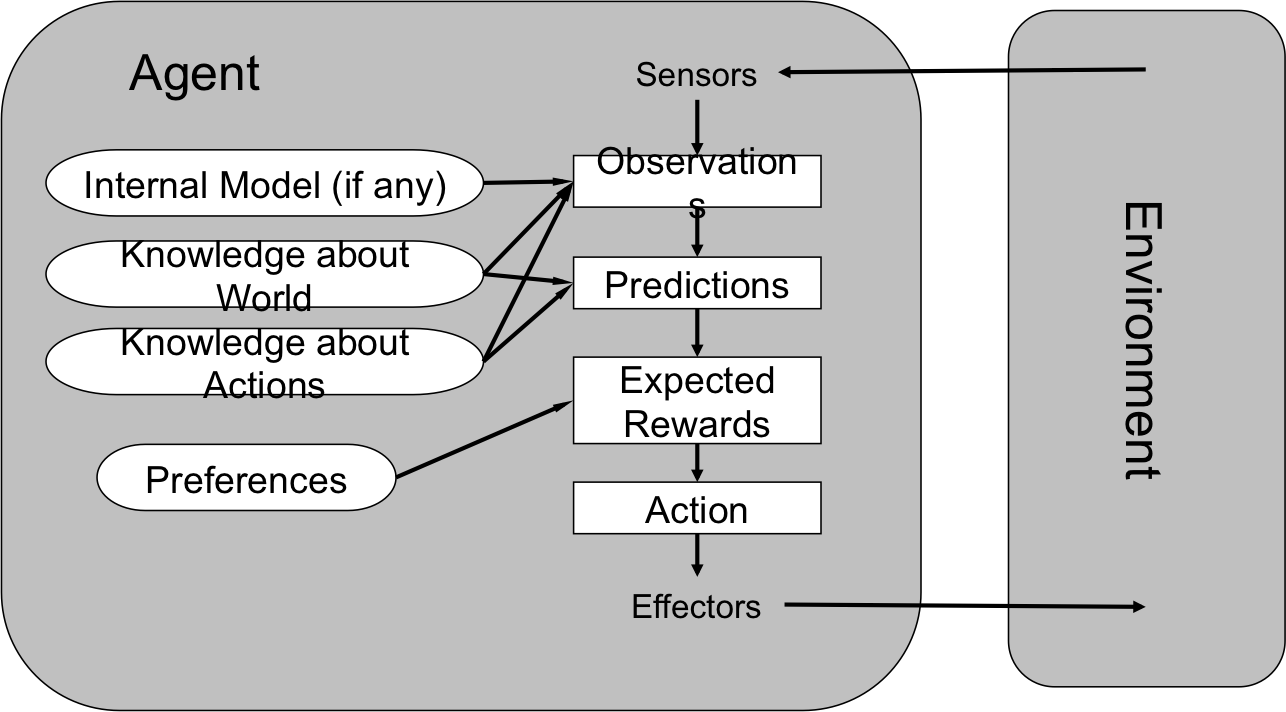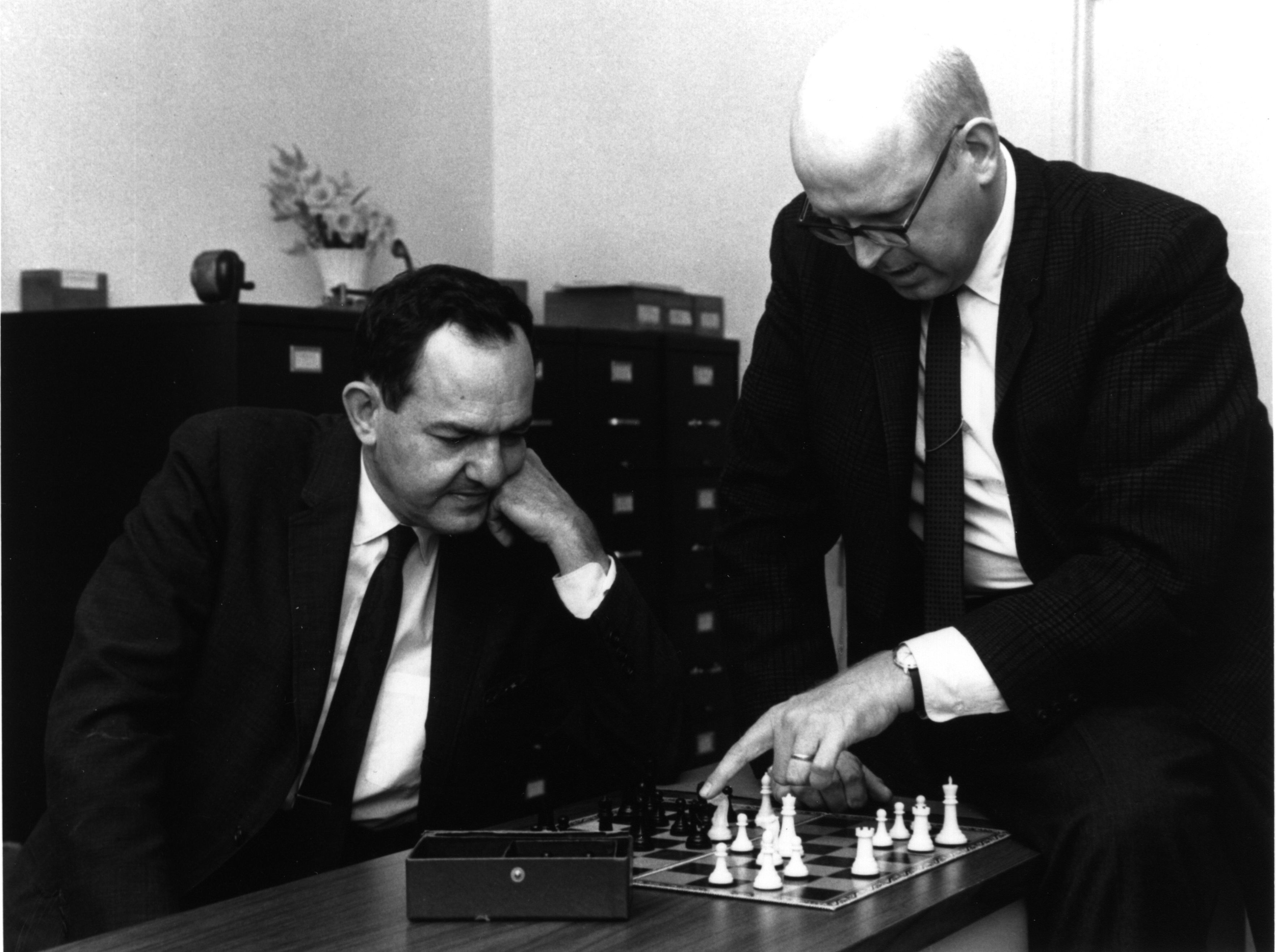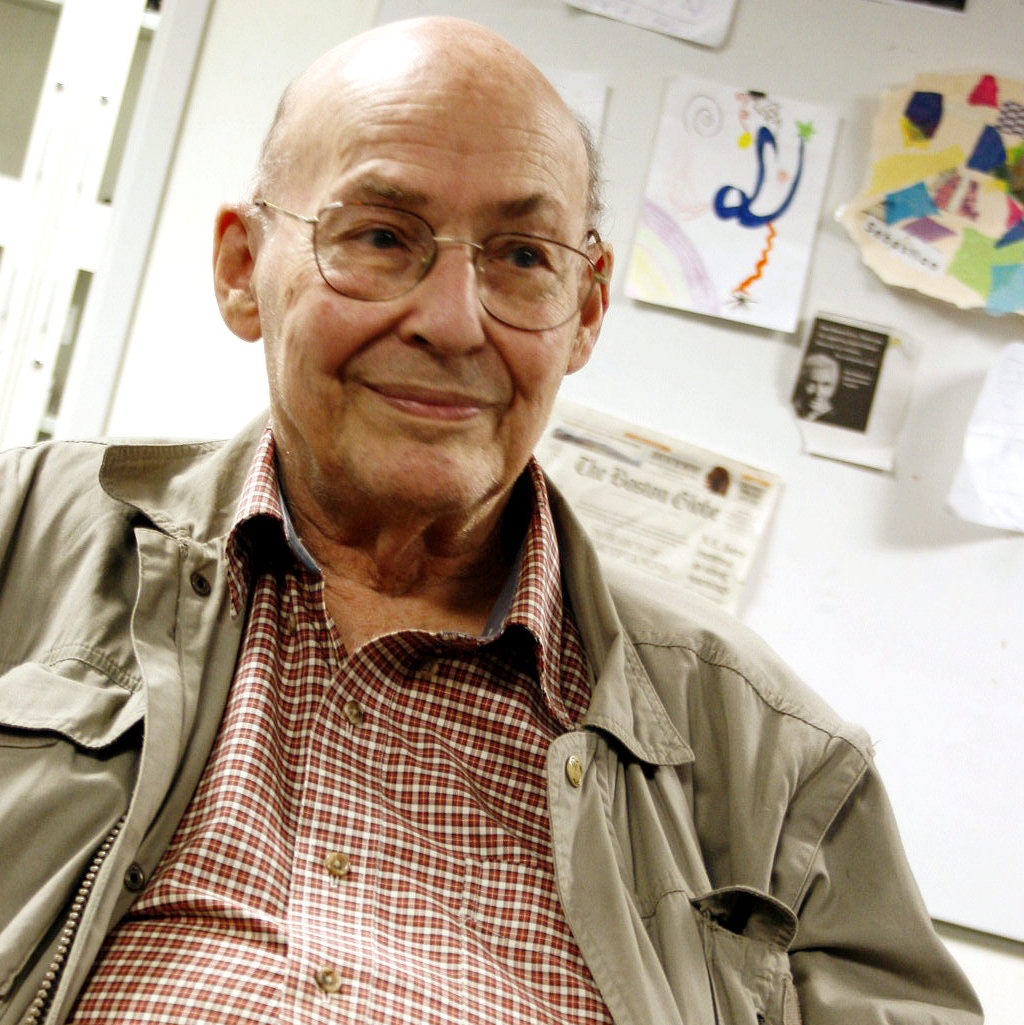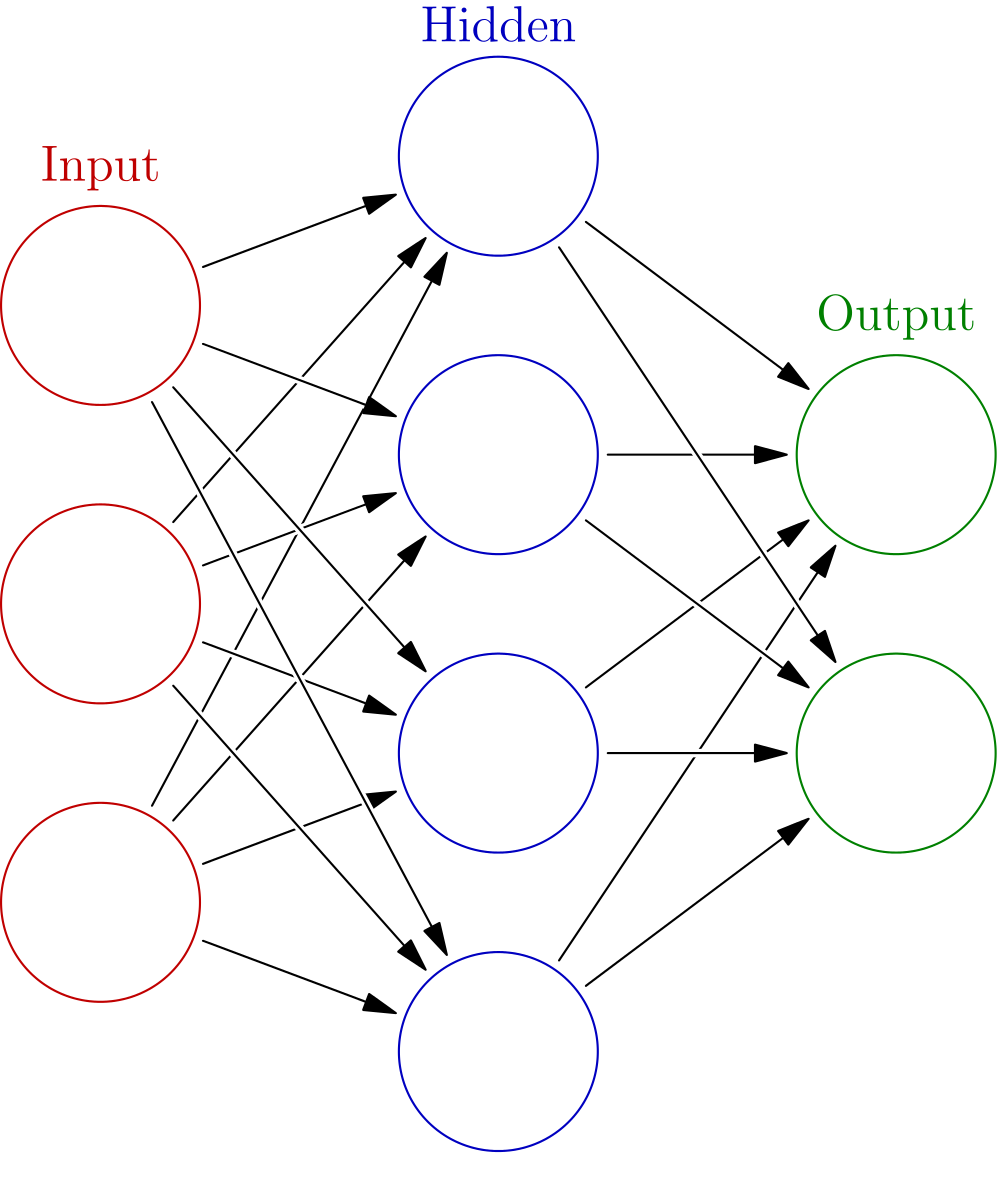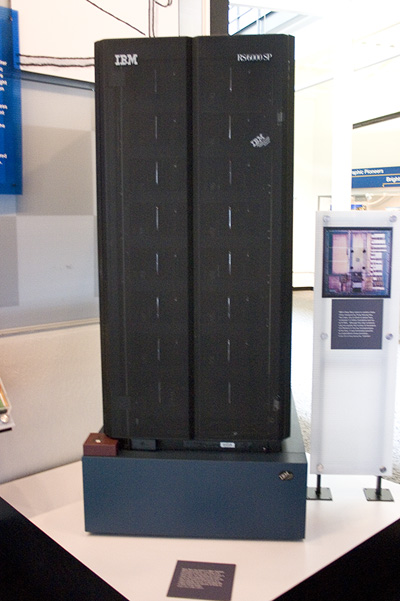CIS 115
Artificial Intelligence
What is Artificial Intelligence?
What is Artificial Intelligence?
"It is the science and engineering of making intelligent machines, especially intelligent computer programs. It is related to the similar task of using computers to understand human intelligence, but AI does not have to confine itself to methods that are biologically observable."
- John McCarthy, 2007
Source: Stanford
Yes, but what is intelligence?
"Intelligence is the computational part of the ability to achieve goals in the world. Varying kinds and degrees of intelligence occur in people, many animals and some machines." - John McCarthy, 2007
Source: Stanford
Isn't there a solid definition of intelligence that doesn't depend on relating it to human intelligence?
"Not yet. The problem is that we cannot yet characterize in general what kinds of computational procedures we want to call intelligent. We understand some of the mechanisms of intelligence and not others." - John McCarthy, 2007
Source: Stanford
Alan Turing (1912 - 1954)
"I propose to consider the question, 'Can machines think?'" - Turing, 1950
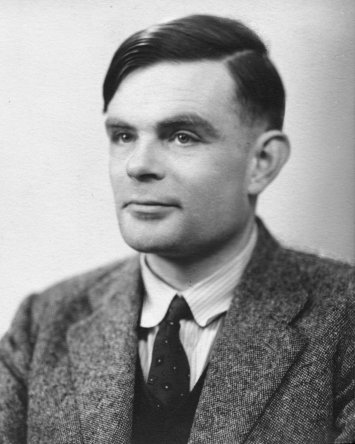
Image Source: Wikipedia
Strong AI vs. Weak AI
- Strong AI - matches human intelligence and is capable of performing any task
- Weak AI - only designed to perform a specific subset of intelligent actions
Intelligent Agents
- Agent: Definition
- Any entity that perceives its environment through sensors and acts upon that environment through effectors
- Examples (class discussion): human, robotic, software agents
Agents
- Perception: Signal from environment, may exceed sensory capacity
- Sensors: Acquires percepts, possible limitations
- Action: Attempts to affect environment, usually exceeds effector capacity
- Effectors: Transmits actions, possible limitations
How Agents Should Act
A rational agent:
- Does the right thing
- Given what it believes
- From what is perceives
Maximum Success Measure (Utility)
- What is the right thing
- How and When to evaluate success
Measuring Performance
Criteria to determine Success
- Depends on Agents and Environments
- Can be measured subjectively (need an accurate answer) or objectively (outside observation)
When to Evaluate Success
- Depends on objective (short-term?)
- Episodic? Milestones? Reinforcements? (games)
Measuring Performance Example
Web Crawling Agent
- Precision: did you get only the pages you wanted?
- Recall: did you get all pages you wanted?
- Ratio: relevant hits vs. pages explored
- Caveat: "you get what you ask for"
Methods for Developing AI
- Knowledge Representation
- Search
- Expert Systems & Knowledge Bases
- Planning: classical, universal
- Probabilistic reasoning
- Machine learning: neural networks, evolutionary computing
- Applied AI: agents focus
- Special topics (NLP focus)
PEAS Framework
Performance Measure
- Specified by outside observer or evaluator
- Applied (consistently) to (one or more) IAs in given environment
Environment
- Reachable Status
- "Things that can happen"
- "Where the agent can go"
- To be distinguished from: observable states
PEAS Framework
Actuators
- What can be performed
- Limited by physical factors and self-knowledge
Sensors
- What can be observed
- Subject to error: measurement, sampling, postprocessing
Neural Network Activity
- Each person has 10 images
- Vote if that image is a CAT or DOG
- If you are correct, you get more votes next time
- If you are incorrect, you get less votes next time
- 100 photos of tanks behind trees
- 100 photos of just trees
- It worked for all pictures that were used to train the system
- It didn't work for another set of pictures
Why?
Artificial Intelligence Today
Other Uses
- Microsoft Kinect
- Apple Siri
- Wolfram Alpha
Almost Everywhere!
What we talked about
- Alan Turing & the Turing Test
- John Searle & the Chinese Room
- Newell & Simon's Logic Theorist
- Dartmouth Research Project
- Subtopics & Tools in AI
- Marvin Minsky & Neural Networks
- AI Today (breifly)
What we didn't talked about
- Philosophical Implications
- Ethical Implications
- Solvability - Is there something a human can do that can't be done by an AI?
- The Singularity
- What is "consciousness"?
Assignments
- Read and be prepared to discuss:
- Tubes Chapter 7: Where Data Sleeps
- Wiki Article- Due 11/6 10:00 PM
- Blog 10: TBD - Due 11/9 10:00 PM
- Cryptography - Due 11/10 10:00 PM
- Mars Rover - Due 12/1 10:00 PM
Blog 10: Will AI Surpass Human Intelligence
The fields of Artificial Intelligence and Robotics have made huge strides in the past few years. However, they still haven’t reached a point where they will overtake humans in terms of overall skill and intelligence. That event, sometimes referred to as the “technological singularity” is a subject of great debate. Some believe it could happen as early as 2040 or even sooner, others believe that it will never truly be possible. Many debate what the world would be like after such an event. Movies such as The Terminator and The Matrix have shown truly dystopian futures as a result of the singularity. Write about your thoughts relating to the possibility of a technological singularity and what the world might be like in the future. The Wikipedia article on Technological Singularity (https://en.wikipedia.org/wiki/Technological_singularity) is a good reference. Here are some good starting points:
- Do you think the singularity will actually come to pass, or will we never achieve that level of technology?
- If you feel it will happen, when?
- Why do you feel this way? Back up your feelings with factual information we have covered in class
- What will the future be like in 50 years? What tasks will robots be responsible for? What tasks will humans still perform?
